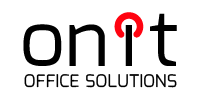In on fast moving business environment, understanding the tools and technologies that facilitate communication is crucial. Among these, fax machines, despite being perceived as a technology of yesteryear, play a significant role in certain industries and applications. This blog aims to provide a comprehensive overview of fax machines, differentiate them from multifunction printers (MFPs), explore their history, benefits, and role in compliance, delve into their applications, describe their appearance and usage, and highlight leading manufacturers.
The Difference Between MFPs and Fax Machines
Multifunction printers (MFPs) and fax machines are both essential office equipment but serve different primary purposes. An MFP is a versatile device that combines printing, scanning, copying, and, often, faxing capabilities into one machine. Its multifunctionality is designed to save space, reduce costs, and improve workflow efficiency in an office setting.
On the other hand, a fax machine is a device specifically designed for transmitting copies of documents via a telephone network. While some MFPs include faxing capabilities, standalone fax machines are dedicated to this purpose, offering features and functions specifically tailored for fax communication, such as secure transmission protocols, speed dialing, and automatic document feeding.
The Invention of Fax Machines
The concept of fax technology dates back to 1843, with the invention of the electric printing telegraph by Alexander Bain. However, the fax machine as we know it today, capable of transmitting images and text over phone lines, was developed in the 1960s. This technology revolutionized communication, allowing for the rapid and secure exchange of documents across long distances.
Benefits of Using a Fax Machine
Fax machines offer several benefits, especially in contexts where document security and integrity are paramount:
- Security: Fax transmission is considered more secure than email, as it is less susceptible to hacking and viruses. This makes it ideal for sending sensitive information.
- Legal Recognition: Faxed documents are legally recognized and can bear signatures, making them suitable for contracts and official documents.
- Reliability: Fax machines are known for their reliability, able to send documents to any fax number worldwide without needing compatible software or hardware.
- Simplicity: Using a fax machine is straightforward, requiring no complex setup or training, making it accessible to all levels of staff.
The Value of Using Fax
In industries where compliance and document integrity are critical—such as legal, healthcare, and government—faxing offers unmatched value. Its ability to provide immediate, secure, and verifiable document transmission is unparalleled, especially in situations where electronic signatures are needed or where digital infrastructure is unreliable.
The Role of Fax in Compliance
Faxing holds a significant role in compliance, particularly with regulations like HIPAA (Health Insurance Portability and Accountability Act) in the healthcare sector, which requires the secure handling of patient information. Fax machines, with their direct line of transmission and established legal validity, provide a compliant way to exchange sensitive information while ensuring data privacy and security.
Fax Applications
Fax machines are used across various industries for a multitude of applications, including:
- Legal Documents: For contracts, affidavits, and other legal paperwork requiring signatures.
- Healthcare: For patient records, prescriptions, and insurance forms.
- Government: In administrative communication and document submission.
- Finance: For loan applications, account forms, and sensitive financial information.
Appearance and Usage
A typical fax machine resembles a small printer or copier. It consists of a document feeder, a display panel for operation, a keypad for dialing fax numbers, and a paper tray. To use a fax machine, one simply places the document in the feeder, dials the recipient’s fax number, and initiates the transmission. The machine scans the document, converts it into a bitmap, and transmits it through the telephone line.
Leading Manufacturers of Fax Machines
Several manufacturers are renowned for producing high-quality fax machines, including:
- Brother: Offers a range of efficient and reliable fax machines, known for their durability and ease of use.
- Canon: Known for high-quality imaging and innovative fax technologies.
- HP: Provides multifunction printers with advanced fax capabilities, catering to businesses looking for versatile devices.
- Panasonic: Specializes in compact and robust fax machines suitable for small to medium-sized businesses.
While the world leans heavily towards digital communication, fax machines retain their relevance in specific contexts, offering security, legal recognition, and reliability. Understanding their benefits, applications, and compliance roles is essential for businesses operating in industries where these factors are crucial. As technology evolves, the integration of fax capabilities into multifunction devices represents a bridge between traditional and digital communication methods, ensuring that businesses can select the most appropriate and efficient means of document transmission for their needs.
